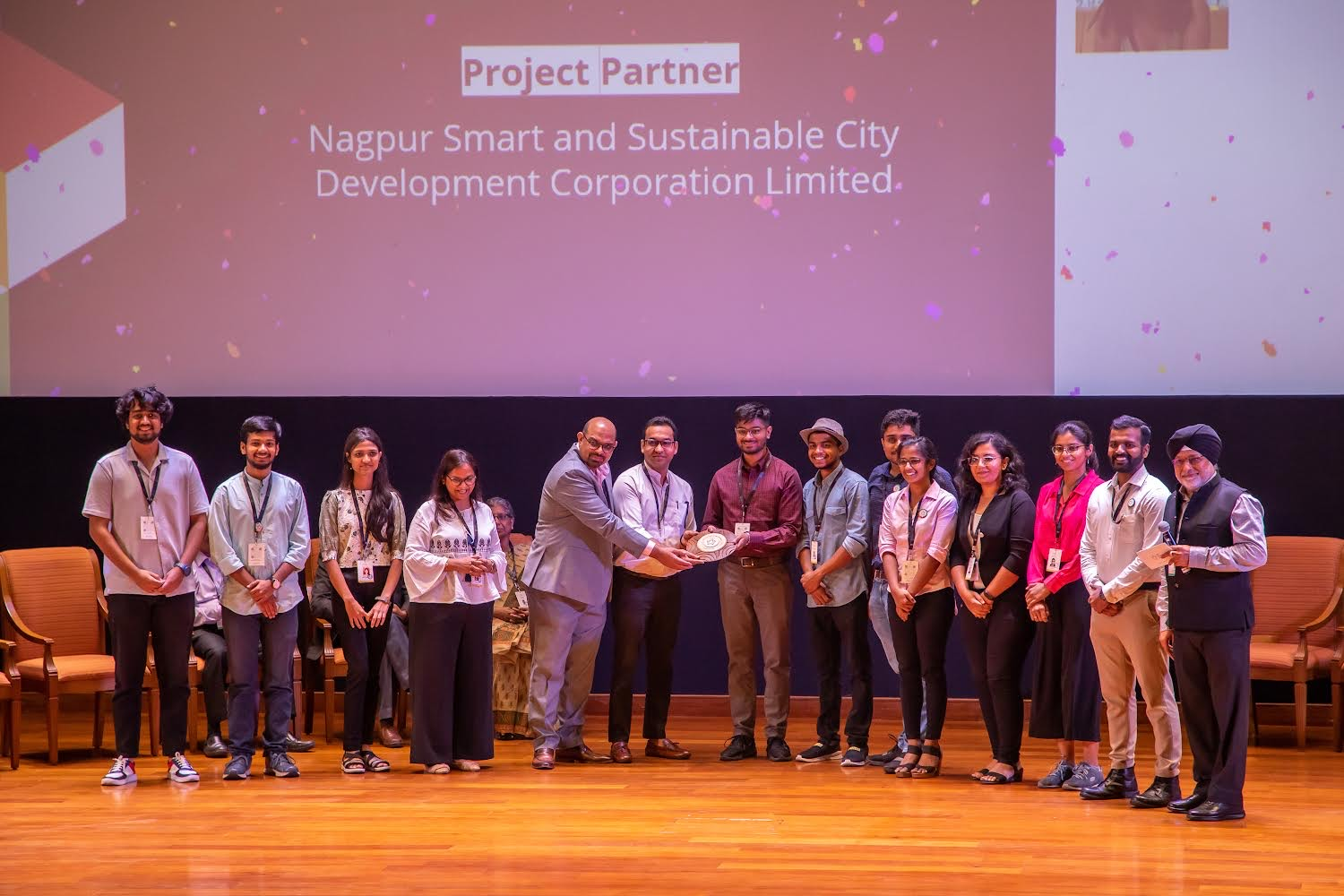Bengaluru, NFAPost: Solar Decathlon India (SDI) recently concluded its 3rd edition at Infosys’ sustainable campus in Mysuru, marking a return to in-person events after two years of virtual competitions due to COVID-19. SDI is an annual challenge for undergraduate and postgraduate students from Indian educational institutions to develop innovative, net-zero energy-water, and climate-resilient solutions for the building sector in India. The event witnessed the participation of 1780 students from 126 academic institutions.
The finals of the competition featured student teams presenting net-zero solutions for 36 real building projects. A Grand Jury consisting of real estate and media experts evaluated the projects, and Team V⁰ from Visvesvaraya National Institute of Technology, Nagpur emerged as the winner of the Grand Prize for the most promising and investment-worthy design.
The winners were announced in the presence of Anish Malpani, an innovator and social entrepreneur, who also delivered the keynote address. The finals drew a crowd of over 650 people, and an internship fair was organized, providing an opportunity for leading organizations working on climate change and net-zero buildings to recruit talented individuals.
Infosys generously provided the venue for the three-day finals as a carbon-neutral event. The SDI trophies awarded to the winners were themselves carbon negative, showcasing how climate change mitigation can be achieved through creativity and perseverance.
To expand the outreach and impact of Solar Decathlon India in addressing climate change, the Council of Architecture (CoA) has signed a Memorandum of Understanding with AEEE, the co-organizer of SDI. This partnership aims to encourage architectural educational institutions and students to participate in the competition.
Prasad Vaidya, Director of Solar Decathlon India, commended the student teams for developing net-zero building designs that rival the work of professional design teams in India. He emphasized the need for building owners and developers to demand this level of quality in every building project they invest in.
The event received praise from Chaitali Bhattacharya, Interim Director of IUSSTF, who highlighted how Solar Decathlon India nurtures a competitive spirit among young participants and encourages them to think creatively to address global climate change challenges.
Aromar Revi, Director of IIHS and co-author of the IPCC AR6 2023 Synthesis report emphasized the importance of resilient net-zero buildings in the urban transition to limit global warming. He acknowledged the innovative solutions proposed by the Solar Decathlon India finalists, which integrate renewable technologies, sustainable design, and community engagement to achieve the 1.5°C goal.
Satish Kumar, President and Executive Director of AEEE, expressed his excitement about the ideas and designs that emerged from Solar Decathlon India, emphasizing the transformative potential of the participants’ engagement with various tools and skills introduced through the competition. He envisioned a movement where buildings transcend their traditional function and become symbols of energy efficiency, resilience, and a sustainable legacy for future generations.
Solar Decathlon India is organized by the Indian Institute for Human Settlements (IIHS) and the Alliance for an Energy-Efficient Economy (AEEE) under the Indo-US Science and Technology Forum (IUSSTF). The 2023-24 edition of the challenge witnessed the participation of 154 teams, comprising 1780 students guided by 200 faculty mentors. Over 30 organizations offered opportunities for the challenge participants.
The winners in each division of the 2022-23 challenge included Team Zenith, Team Synergy, Team Green Collars, Team V⁰, Team Samakrut, and Team Echo. These teams excelled in categories such as single-family housing, multi-family housing, educational building, office building, community resilience shelter, and on-site construction worker housing.
Solar Decathlon India serves as a platform for students to learn and design net-zero-energy-water, affordable, and resilient solutions for real projects that combat climate change in the building sector. Through hands-on experience, self-learning modules, and expert mentorship, the competition aims to drive the implementation of student-developed net-zero solutions in the construction and real estate industry.





